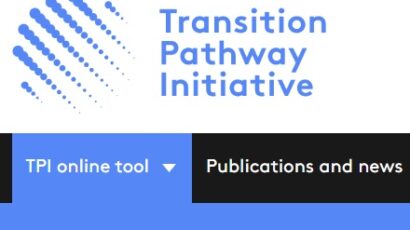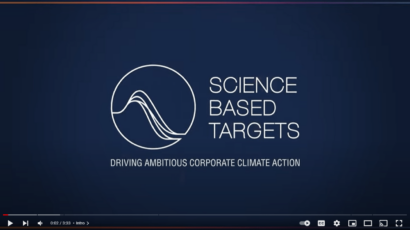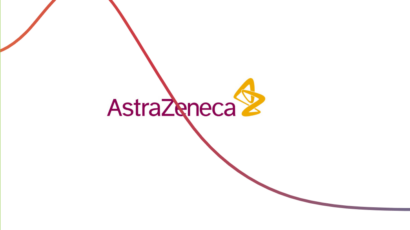Credible net zero targets
- discover what a business must do to set a credible net zero commitment and deliver on it with a robust net zero strategy
- and gain insight into offsetting and how it can credibly be used to complement a net zero strategy.
Featured content

Science Based Targets Initiative: Monitoring Report 2022
The SBTi's 2022 report, examining progress in science-based targets globally, finds continued growth in the number of companies and financial institutions setting science-based targets, despite an increasingly challenging global backdrop.
Net Zero Tracker
The Net Zero Tracker is aiming to be the definitive global resource for collating, assessing and presenting the scale and quality of net zero pledges across nationals, sub-nationals, companies and other entities

Transition Pathway Initiative

Watch: Introducing the SBTi Corporate Net-Zero Standard
Emma Watson, the Science Based Targets initiative's Senior Manager for Net-Zero, explains the world's first Standard for corporate net-zero science-based targets.
Blog articles
View all
How Firms Can Prepare for the Anti-Greenwashing Rule
The FCA is expected to publish its policy statement on Sustainability Disclosure Requirements (SDR) for wealth, fund and asset managers in Q4 2023. Michael Johnson and Daniel Barry of KPMG UK offer five proactive steps for firms to consider.

Net zero: From good intentions to real change
Mark Bryant, Consultant for The Berkeley Partnership and the primary author of the Chapter Zero Board Toolkit, reflects on what he’s learned from his experiences of helping clients on their journey to net zero.
Case studies
View all
Net-Zero Case Study - AstraZeneca
In this Science Based Targets case study, find out how leading global biopharmaceutical business AstraZeneca is working closely with its supply chain partners and peers to tackle its scope 3 emissions.

Net-Zero Case Study - Jacobs
In this case study from Science Based Targets, discover how Jacobs is addressing the core challenge of reducing its scope 3 emissions.

Assisting Siemens on their route to net zero: Case study from The Carbon Trust
The Route to Net Zero Standard goal is to help organisations like Siemens to measure and manage their emissions, inform carbon reduction strategies, and create climate targets fit for the future. Through this third-party verification and gap analysis, Siemens plc became one of the first companies accredited with this Standard. Read the case study.
Explainers
View all
Integrity matters: Net zero commitments
Published following COP27, the United Nations’ Integrity Matters report makes 10 recommendations businesses should implement to develop a robust net-zero strategy with credible commitments and a roadmap to evidence-based action. This briefing from the Climate Governance Initiative highlights the key points for board directors.

The corporate net-zero standard
The SBTi’s Corporate Net-Zero Standard provides the guidance and tools companies need to set science-based net-zero targets.

Briefing: Net Zero for corporates
It’s widely used, but do you know what Net Zero means? Carbon Trust gives you the answers to this and other Net Zero questions.
News
View all
FCA proposes new rules to tackle greenwashing
In a bid to clamp down on greenwashing, the FCA is proposing a package of new measures including investment product sustainability labels and restrictions on how terms like ‘ESG’, ‘green’ or ‘sustainable’ can be used.
Reports
View all
Science Based Targets Initiative: Monitoring Report 2022
The SBTi's 2022 report, examining progress in science-based targets globally, finds continued growth in the number of companies and financial institutions setting science-based targets, despite an increasingly challenging global backdrop.

SBTi corporate Net Zero Standard
Through a transparent multi-stakeholder process, the Science Based Targets initiative (SBTi) has developed the first global science-based standard for companies to set net-zero targets. The Net Zero Standard gives business leaders confidence that their targets are aligned with what is needed for a habitable planet, and it provides clarity on business climate action to a wide range of stakeholders.

Guidance on avoided emissions
The World Business Council for Sustainable Development (WBCSD) and its member companies, in collaboration with Carbone4 and its Net Zero Initiative released the “Guidance on Avoided Emissions: Helping business drive innovations and scale solutions toward Net Zero”.
Toolkits
View all
Transition Pathway Initiative
Net Zero Tracker
The Net Zero Tracker is aiming to be the definitive global resource for collating, assessing and presenting the scale and quality of net zero pledges across nationals, sub-nationals, companies and other entities
Videos
View all
Watch: Introducing the SBTi Corporate Net-Zero Standard
Emma Watson, the Science Based Targets initiative's Senior Manager for Net-Zero, explains the world's first Standard for corporate net-zero science-based targets.

Watch: Preparing your board for the journey to net zero
In collaboration with the Carbon Trust, this event explored themes such as understanding what net zero means for corporates, the importance of credible claims to avoid greenwash, and questions you should be asking in the boardroom to explore how your board is responding to the challenge of climate change.

Watch: Banking on net zero: from commitment to action
This event for non-executive directors of banks and financial institutions discussed the practicalities of putting together a net zero plan.
